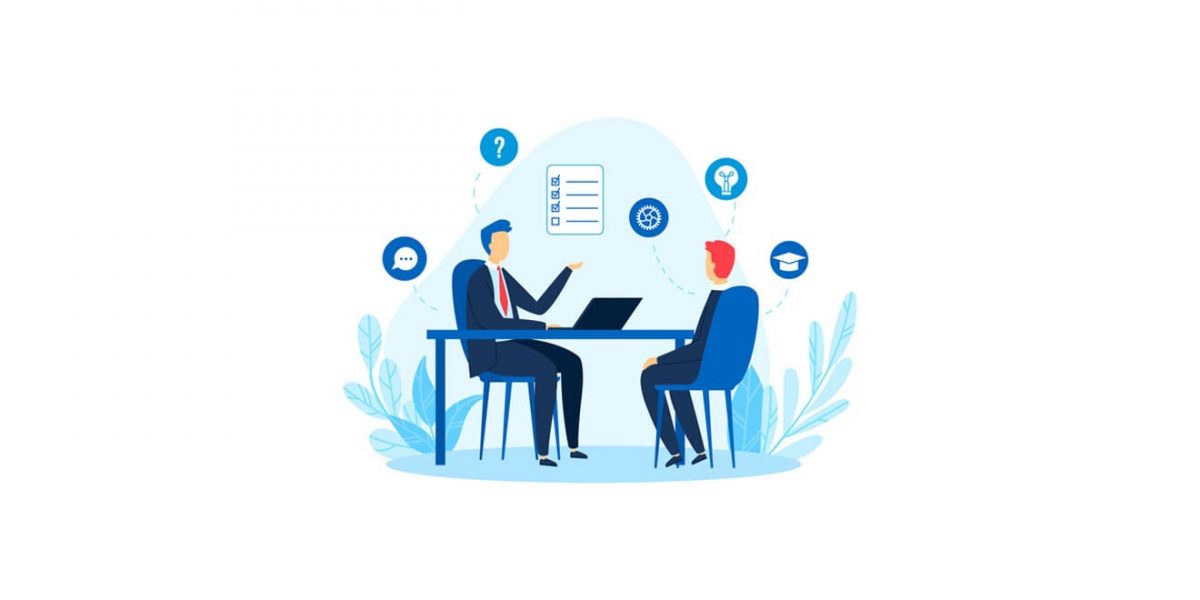Interviews can be stressful, especially if you really want to land the job. When you interview, the recruiter/hiring manager is looking if your skills and experience align with the role, but also if you as a person fit in with the team/department you will be working with. Depending on the type of role you are interviewing for, they may be looking for a natural born leader, an outspoken thought generator, a highly effective communicator, a quiet analyst with a passion for statistics, a workhorse with a can-do attitude… it completely depends on the role, company, and team dynamic. There is no one-size-fits-all personality type for all roles, but what you can do is show them your authentic self while selling you to be the best fit.
When you go into an interview, there are questions that are standard that you will be asked, questions to see how you handle situations, questions to “weed out” toxic candidates, and questions that may throw you for a loop. I was once asked during an interview “if you were a superhero, which one would you be?” I couldn’t help but think to myself, what kind of question is that?! Why does it matter? The reality was, once I reflected on the interview, a question like that can show the interviewer how you think on the spot, the traits you admire most in a superhero, how you handle on-the-spot stressful experiences, and how you handle non-business discussions at work. I then started to ask that question when I started hiring people for my own company and it was always fun to hear what people had to say. It’s even more interesting when people do not have an answer and struggle to respond.
Here are two of my favorite answers:
- Batman because he is an ordinary man without super powers but uses his personal wealth and political standing within the community to make it better.
- Superman because he is overly powerful, has to control his own strengths, and always does good. He could destroy everyone and everything if he wanted, but he doesn’t because he proves people are intrinsically good. Also, he can fly!
For the record, here was the worst answer I ever received:
- Roadrunner because he’s nonstop, fast, and always tricks Wile E Coyote.
But the point of this post is not to go over the best and worst superheroes (or cartoon characters), it’s to help you understand how you can nail a job interview and get one step closer to a callback for another round or interviews or a job offer.
Practice makes perfect
When you’re an athlete, you practice your craft. You eat healthy, work on your cardio, build your muscles, practice muscle memory, and strive for perfection. The same goes for a job interview. If you practice answering interview questions, you are bound to be more comfortable, and ultimately turn into an interviewing pro.
Here is the best recommendation I can give you: ask yourself questions and answer them while recording yourself (on your phone or computer). This gives you the opportunity to see how you answer the questions and to go back and correct the answers you know could use improvement.
Once you have completed self-evaluation and improvement, ask a friend or family member to mock-interview you. Will it be awkward at first – absolutely. But once you get comfortable, you’ll get a better idea of how it will feel when in an interview. When you do this, provide the questions to the mock-interviewer in advance, so they can review the questions they will ask and possibly add others based on their job interviewing experience. Here are some standard questions you should always have answers to when going into a mock-job interview:
- Tell me a little about yourself.
- What are your strengths?
- What are your weaknesses?
- Where do you see yourself in five years?
- Why do you want to work for this company?
- Why do you want this position?
- Out of all the candidates, why should we hire you?
- How did you hear about this job?
- Tell me about a time where you had conflict in the workspace and how you handled it.
- What has been your biggest professional accomplishment? What has been your biggest academic accomplishment?
- What is your dream job?
- Why do you want to leave your current position?
- What kind of environment do you work in best?
- What are three words people would use to describe you?
Do your homework
Would you walk into a sales meeting not knowing anything about the company you are trying to sell to? Absolutely not. The same goes for interviews. Take the time to research the company you are interviewing with. What do they do? How many employees do they have? Are they a public or private company? What is their mission statement? What impacts have they made in their industry? How do they rank within their specialized industry?
The reality is that you need to sell yourself to the people you interview with. You are the pitch. But to know how to tug at their heartstrings, pique their interest, and motivate them to acquire you, you need to know what their goals and outcomes are.
Spend thirty minutes to an hour on their website and googling the company’s name. Review the interviewer/hiring manager’s LinkedIn profile to see if there is any experience that stands out that you can capitalize on. Did the recruiter go to the university in your hometown? Do you share a love for the same sports team? Do you both volunteer your time with like-minded non-profit organizations? Did you both have the same major or minor in college? Do you have common connections that can come up in conversation?
When you interview, they want to see that you took the time to get to know the company. They want to know you are invested in the company from the get-go, the way they are working for them. Don’t be lazy and show up without information – it can be detrimental to whether or not you move onto the next round of interviews or receive the job offer.
Clean up your resume
Before attending an interview, make sure your resume is up-to-date and free of grammatical and spelling errors. From the time you applied for the job to the point of interviewing, there’s a chance your work experience or skills have changed. Make sure that is completely reflected on your resume.
If you are attending an in-person interview, print out a few copies to bring along. If you are attending a virtual interview, email your updated resume over 30 minutes before your interview. You’ll be happy you did, and the interviewer/hiring manager will see you are proactive with your approach to obtaining the job you’re interviewing for.
Give examples
During the interview, it’s one thing to regurgitate what your resume says, but people love to hear concrete examples and actual statistics. When explaining what you do at your current job, provide specific examples of what you work on and who you work with. If you work with numbers, explain how you get these numbers and the work that goes in.
Tell a story during the interview about your work experience and skills and you are more than likely to leave a lasting impression. You need to always go above and beyond the bare minimum, not only when trying to get the job, but once you have it. Also, these stories help build a picture in the interviewer’s head on how you will contribute and fit into the department/team you will be working with.
Other things to keep in mind when interviewing are to maintain eye contact during an in-person interview, build rapport, display confidence and comfortable body language, maintain an appropriate dialogue and demeanor, and finally, be yourself.
Send a follow-up post-interview
Once you have interviewed for the position, within 24 hours send a thank you follow-up email. Even if you completely bombed the interview, show professionalism, and thank them for their time. Time is money, and that applies to everyone – not just the rich. Here’s a follow-up email you can use, but make sure you customize and make it personal.
Dear [interviewer],
It was wonderful to meet you today at my interview for the [role] role. It was especially interesting to learn more about your role as a [interviewer’s role], your team, and the recent [recent project] you’re rolling out.
You mentioned needing a [role] who’s able to learn on the go and that’s a skill I’m eager to continue. Most recently, I [give an example of what you’ve done – e.g., built my own personal website for this job search] and enjoyed the process of figuring it out.
I’d love the opportunity to continue learning with an innovative team and feel confident I’d be a great addition.
I’ve attached my resume and cover letter, so you have digital copies. Please let me know if you need anything else from me. I look forward to hearing about the next steps in the interview process.
Sincerely,
[your name]
[your email]
[your phone number]
[your LinkedIn profile URL]
Interviewing for a job can be scary, but it doesn’t have to be. As long as you prepare and are confident and articulate with what you can bring to the table, you will find the right fit at the right company. When you start nailing interviews, you will gain confidence in your ability to sell yourself and how to communicate that investing in you is the best investment the company can make for themselves.


